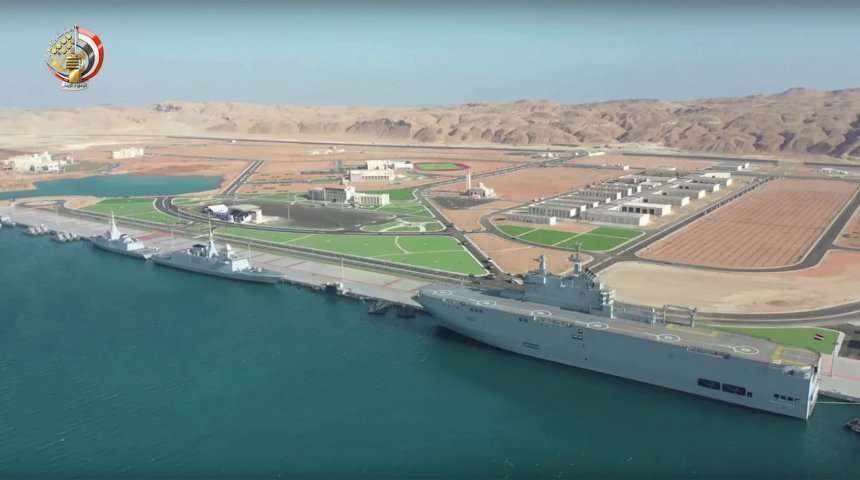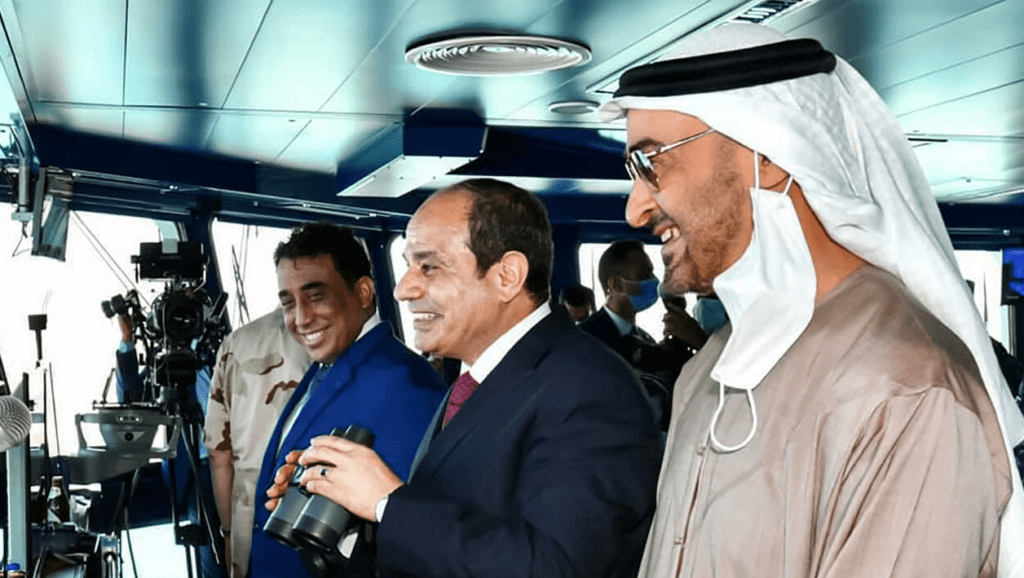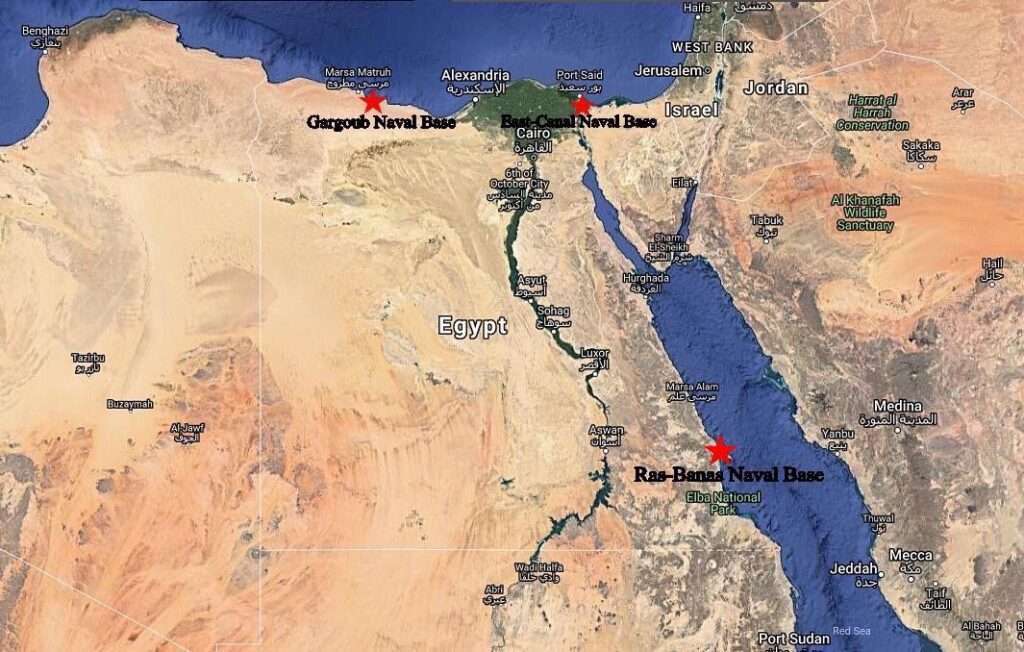
This week, Egypt is celebrating the 8th anniversary of removing the Muslim Brotherhood regime from power, in 2013. In celebration, the Egyptian president launched a new naval base with the name “The 3rd of July” at Gargoub Port on Egypt’s northwestern coast in the Mediterranean. The opening ceremony was attended by H.H. Sheikh Mohamed Bin Zayed, Crown Prince of Abu Dhabi and the Deputy Supreme Commander of the UAE Armed Forces, as well as the President of the Libyan Presidential Council, Mohamed Al-Menfi.
The geographic proximity of the new naval base to Libya borders sheds a special light on the role this new military base may play in enhancing Egypt’s political and military cooperation with Libya. The base is located on the Mediterranean shores between the landmark cities of Marsa Matrouh and Sidi Barrani; about 121 kilometers (one and half hour by a car) away from Egypt’s borders with Libya. Libya represents the western strategic depth of Egypt’s national security. The quavering security situation in Libya and the potential failure of the political process are of immediate concern to Egypt. That is particularly true in light of the continued presence of Turkish troops, as well as local militia and foreign mercenaries separately commanded by Turkey and Russia.
According to Libyan media, Egypt invited Parliament Speaker Aguila Saleh and the Libyan National Army (LNA) Commander Khalifa Haftar, from Benghazi. While, from Tripoli, Mohamed Al-Menfi, the President of the Presidential Council is the only one invited. Otherwise, Abdul Hamid Dbeibeh, the Prime Minister of the Government of National Unity (GNU) is not invited, despite the criticality of his political position. Apparently, Egypt deliberately excluded Dbeibeh because of his support to the continued presence of the Turkish troops in Libya. This move by Egypt carries an important message, especially in light of the currently growing tensions between several political factions in Libya.

Prime Minister Dbeibeh is walking on a very thin wire to accomplish his government’s assigned mission to unite eastern and western Libyans before holding the general elections in December. One important step to achieve this unity is through hiring a defense minister that can bring together the eastern and western militaries under one command. In March, GNU Prime Minister, Dbeibeh mentioned that he cannot hire a defense minister because of “huge pressures leveled on his government by foreign parties.” Rather, he validated the military agreement signed by his predecessor with the Turkish military, in 2019.
Over the last week, the Libyan military committee (5+5), GNU President, and GNU Prime Minister exchanged official letters about the necessity of filling the vacant position of the defense minister. The military committee and the presidential council threatened to name a defense minister, by July 4th, if Dbeibeh continues to ignore their request to hire one. The tough language of the letters indicates that there is a strong disagreement among the political leaders in Tripoli, in addition to the already present tensions between political and military factions in the eastern and western territories. This raises the potential of political failure and the eruption of a new civil war, which will be disastrous for Libya, for its immediate neighbor Egypt, and the entire region of the Mediterranean.

Regional leaders and the international community tirelessly call for the removal of foreign troops and mercenaries from Libya. However, they fail to see that this is impossible to do as long as the country is commanded by two separate militaries that have conflicting interests. On the eastern side, the LNA, commanded by Haftar, is supported by Russia and France. Haftar will never agree to submit to the central command in Tripoli. On the western side, GNU’s armed forces, which is the official central command, is dominated and equipped by Turkey, since the Turkish military reassembled it in early 2020.
The Egyptian president is expected to meet with the Libyan leaders, on the side of the launching ceremony of the new naval base in Gargoub. Let’s hope this meeting can rescue the fragile political process in Libya and put an end to Libya’s chronic political and military divisions.

Leave a Reply